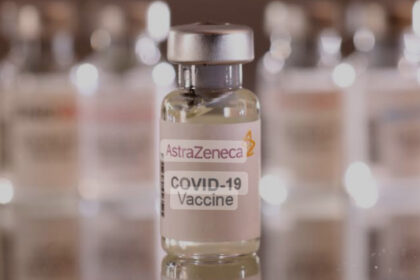In the global fight against the COVID-19 pandemic, vaccines have emerged as a critical tool in curbing the spread of the virus and protecting populations from severe illness. However, recent research has shed light on potential side effects associated with some of the most widely administered COVID-19 vaccines, raising concerns among healthcare professionals and the public alike.
A study conducted by a team of scientists has uncovered troubling findings regarding the safety profiles of several prominent COVID-19 vaccines. While these vaccines have played a pivotal role in reducing the burden of the disease and facilitating a return to normalcy, the researchers have identified adverse reactions that warrant further investigation and monitoring.

Among the vaccines scrutinized in the study are those developed by Pfizer-BioNTech, Moderna, AstraZeneca, and Johnson & Johnson. Despite their efficacy in preventing severe COVID-19 illness and mortality, the researchers found evidence of potentially dangerous side effects associated with each of these vaccines.
One of the main concerns highlighted in the study is the risk of rare but serious adverse events such as myocarditis and pericarditis, particularly among younger individuals who received mRNA-based vaccines like Pfizer-BioNTech and Moderna. Myocarditis, inflammation of the heart muscle, and pericarditis, inflammation of the outer lining of the heart, have been reported in some vaccine recipients, prompting investigations into possible links with the immunization.
Additionally, the study revealed instances of thrombosis with thrombocytopenia syndrome (TTS) following vaccination with adenovirus vector vaccines, including the AstraZeneca and Johnson & Johnson vaccines. TTS is a rare but potentially life-threatening condition characterized by blood clots combined with low levels of blood platelets, which can lead to severe complications if not promptly treated.
While the overall risk of experiencing these adverse events remains low, the findings underscore the importance of continued vigilance in vaccine safety monitoring and surveillance efforts. Healthcare providers are advised to remain alert to potential symptoms of myocarditis, pericarditis, and TTS among vaccinated individuals, particularly within specific demographic groups.
Furthermore, the researchers emphasize the need for transparent communication and informed consent regarding the risks and benefits of COVID-19 vaccination. By providing individuals with comprehensive information about potential side effects, healthcare professionals can empower them to make educated decisions about their health and vaccination choices.
It is essential to note that the benefits of COVID-19 vaccination in preventing severe illness, hospitalization, and death far outweigh the risks associated with rare adverse events. Nevertheless, ongoing research and surveillance are crucial for identifying and addressing safety concerns promptly.
In conclusion, while COVID-19 vaccines have proven to be effective tools in combating the pandemic, recent scientific findings highlight the importance of comprehensive safety monitoring. By remaining vigilant and responsive to emerging data, healthcare systems can continue to ensure the safety and well-being of vaccinated individuals while advancing global efforts to end the COVID-19 crisis.






